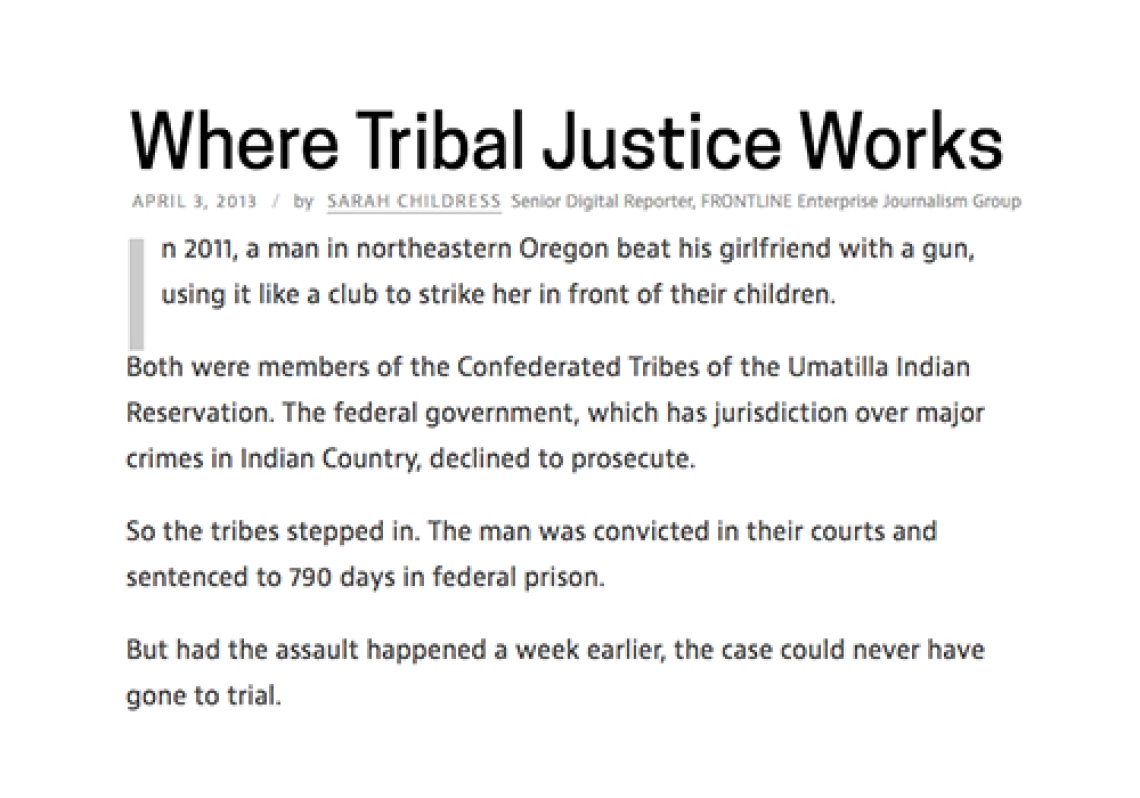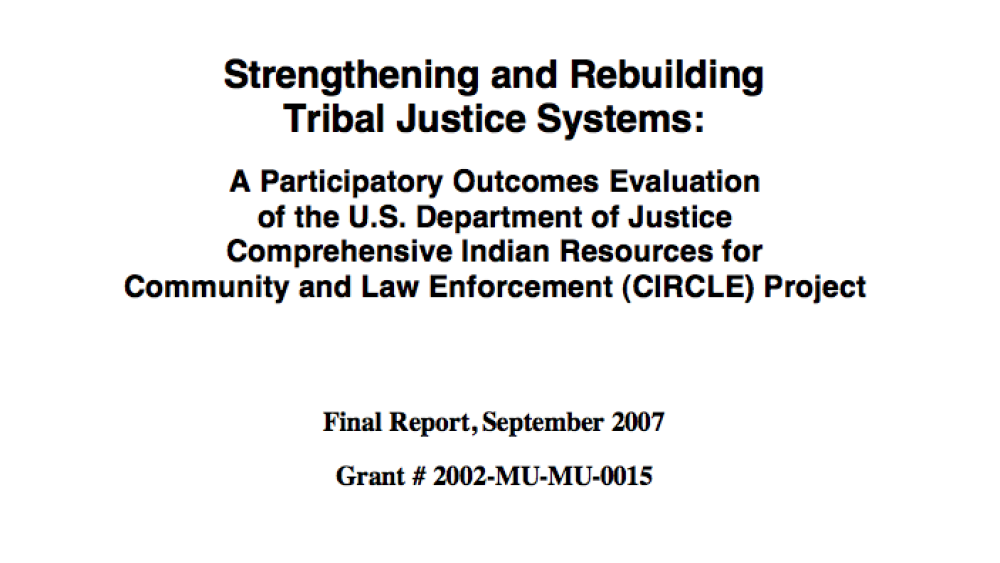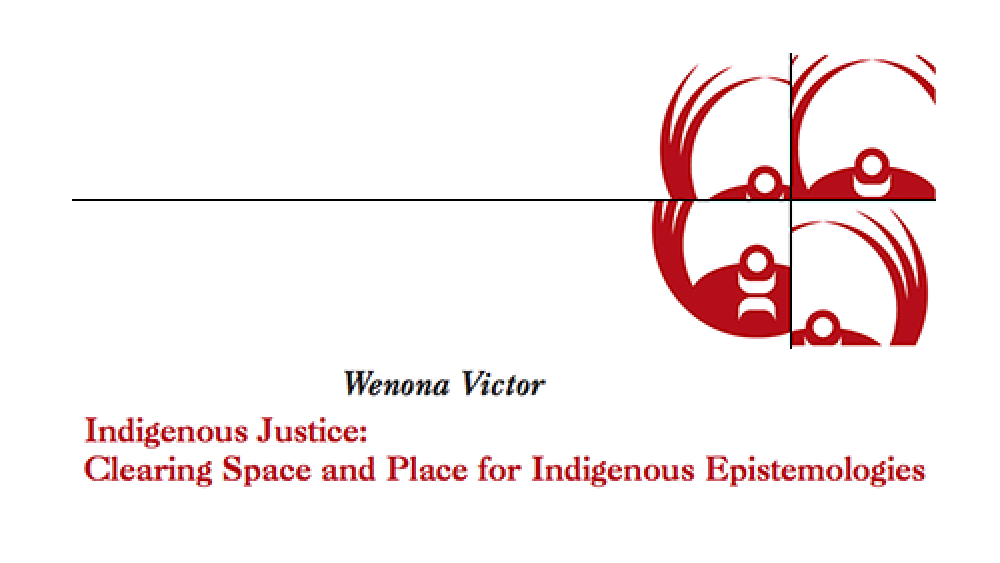In 2011, a man in northeastern Oregon beat his girlfriend with a gun, using it like a club to strike her in front of their children.
Both were members of the Confederated Tribes of the Umatilla Indian Reservation. The federal government, which has jurisdiction over major crimes in Indian Country, declined to prosecute.
So the tribes stepped in. The man was convicted in their courts and sentenced to 790 days in federal prison.
But had the assault happened a week earlier, the case could never have gone to trial.
The Umatilla tribes had recently enacted new provisions from a federal law, the Tribal Law and Order Act, that allowed Native American courts to try their own people for felony crimes instead of relying on the federal authorities.
Without those provisions, once federal prosecutors declined the case, the woman would have had no other legal recourse...
Additional Information
Childress, Sarah. "Where Tribal Justice Works." PBS Frontline. April 3, 2013. Article. (http://www.pbs.org/wgbh/frontline/article/where-tribal-justice-works/, accessed June 4, 2024).




